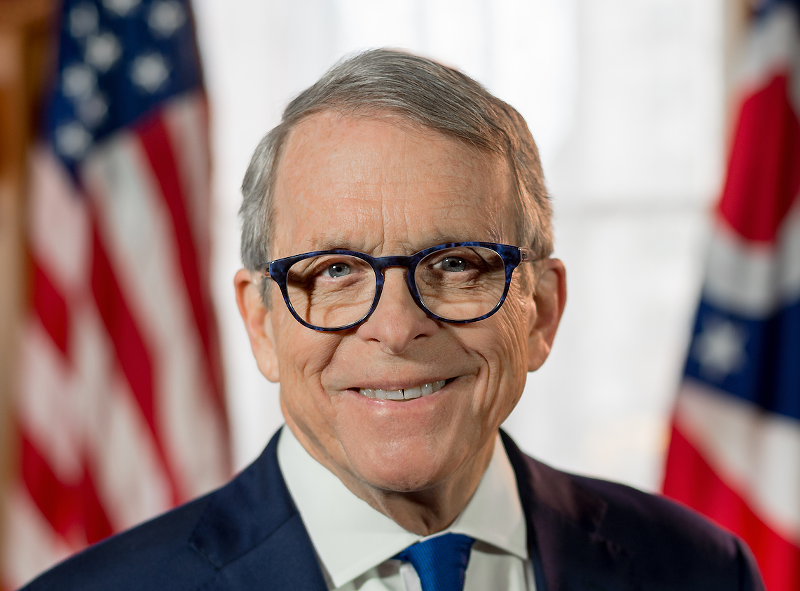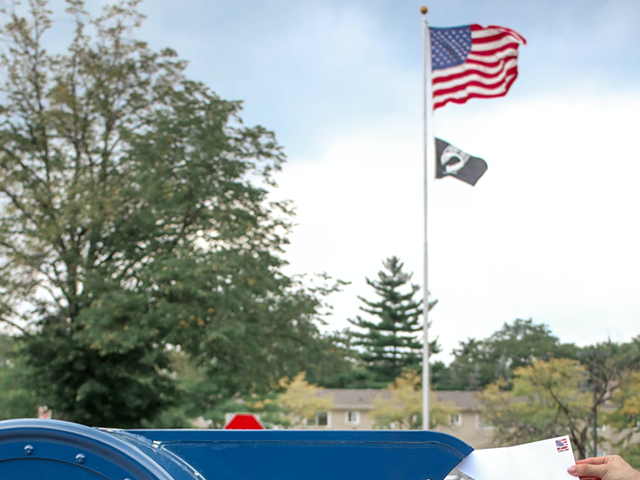This week, Gov. Mike DeWine signed a bill aimed at blocking a key player in the state’s pandemic response: Mike DeWine.
Granted, the legislation in question does not name DeWine or single-out the office of governor, but his signature on House Bill 272 does prohibit “any agent of the state” — including elected officials like the DeWine — from issuing future emergency orders to close houses of worship or to delay elections.
The measure is the latest example of the tension between Ohio’s Republican governor and lawmakers in his own party, who have tangled over DeWine’s mask mandate and restrictions on businesses and public life. In July, the governor vetoed a bill that sought to eliminate the possibility of criminal penalties against those who violate state or local health orders; in August, a conservative lawmaker went as far as drafting articles of impeachment over DeWine’s alleged “abuses of power.”
DeWine is not going to be impeached. But he has given some ground to the forces that view the state’s ongoing coronavirus health measures as threats to freedom. This give-and-take played out in HB 272, which landed on DeWine’s desk just days after he signed a bill giving businesses, health care workers, and schools a one-year window of immunity from lawsuits related to the spread of COVID-19.
However, when it comes to in-person religious services, the issue isn’t what DeWine has done in the past, but what he could do if the virus spikes again to dangerous levels.
Although DeWine never ordered churches to close their doors, he has spoken out multiple times to oppose in-person services. In March, during the first weekend after issuing the state’s stay-at-home order, DeWine said it would be “a huge mistake” for worshipers to attend physical services.
But people did just that. On Aug. 4, DeWine penned a “faith-based letter” to religious leaders warning that “specific examples” of coronavirus outbreaks had been linked to worship services, including one case in June in which a single church attendee with COVID led to 91 infections.
“We have been very careful throughout this pandemic to exempt religious services from any regulations,” DeWine wrote at the time, though he added that in-person religious services are still covered by the state’s mask mandate.
But HB 272 isn’t entirely a preventative measure against DeWine’s future actions. The bill was amended in the Senate to include a second provision, one that blocks public officials from changing elections beyond the established prescribed time, place, and manner — meaning the governor cannot do what he did on March 17, when he delayed the primary election just hours before the polls were set to open.
At the time, DeWine justified the delay citing the “unacceptable health risk” that would result from forcing poll workers and voters to congregate during the election.
With HB 272 signed, DeWine won’t be able to repeat that choice, no matter the level of health risk an election may pose in the future.
For some Republican lawmakers, that’s great news, because they already believe the risk is gone. (Ohio passed 140,000 coronavirus cases this week, while on Tuesday it recorded 87 deaths, the highest fatality number since May, for a total of 4,555 virus-related deaths.)
Indeed, on Wednesday, while DeWine was signing a bill to shrink his power to respond to future health emergencies, State Rep. Diane Grendell (R-Chesterland) was introducing legislation that seeks to bypass the governor entirely in order to end the state’s emergency health order.
Grendell was the lawmaker who had sponsored the bill DeWine signed earlier this week giving companies immunity from future coronavirus lawsuits. In a Facebook post, she downplayed the health risks of coronavirus, writing that Ohioans should instead rely on their own judgement and that, “Government cannot protect us from every single one of life’s risks.”
DeWine may have approved Grendell’s earlier bill, but he’s not on board for her latest effort. Dan Tierney, the governor’s press secretary, pointed out the obvious in a statement to The Ohio Star:
“The pandemic emergency is not over,” Tierney said. “We oppose this bill at this time.”






